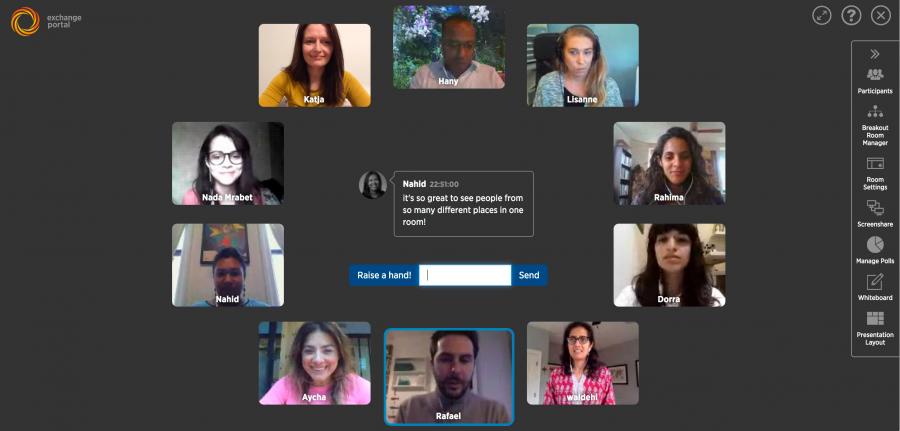- About
- Admissions
- Study at AUS
- Prospective Students
- Bachelor's Degrees
- Master's Degrees
- Doctoral Degrees
- Admission Publications
- International Students
- Contact Admissions
- Grants and Scholarships
- Sponsorship Liaison Services
- Testing Center
- New Undergraduate Student Guide
- Undergraduate Orientation
- New Graduate Student Guide
- Graduate Orientation
- File Completion
- Payment Guide
- Students with Disabilities
- Executive and Continuing Education
- Academics
- Life at AUS
- Research
- Publications
- Contact Us
- Apply Now
- .

AUS students win first MENA Prize for Excellence in Soliya’s International Exchange Initiative
Students from American University of Sharjah (AUS) were awarded first prize in the MENA Prize for Excellence for their active participation and excellent contributions to the growth and quality implementation of an international virtual exchange initiative.
More than 30 AUS students from the College of Arts and Sciences (CAS) participated in the Connect Program, an online cross-cultural education program for eight weeks organized by Soliya, an international NGO, where they engaged in facilitated and substantive dialogue, and built meaningful relationships across national, cultural, religious, and ideological boundaries.
The Department of International Studies in CAS collaborated with Stevens Initiative, an international organization that supports career building and global competence skills for young people in the US and MENA region, to promote the virtual exchange experiences for the students.
“Since this was our first time participating, we decided to pilot the program for a general education course. Our course Modern Arab History attracts a lot of interest from students who come from various disciplines with a wide range of experiences, expectations, and interests. We felt that the course provided us with an opportunity to sample the exchange program with a diverse cohort,” said Dr. Sara Farhan, Assistant Professor of International Studies at AUS.
Students attended all eight two-hour sessions at designated times that fit their schedule. They met weekly and discussed an array of topics that ranged from reflections on in-session-assigned readings to commentary on contemporary issues. While contemporary politics was the focus, COVID-19 was a dominant topic since the pandemic was unfolding during the exchange program. Students discussed challenges pertaining to education, graduation, studying, mental health, family dynamics, and social interactions. They also discussed political tensions specific counties face and social, political, and economic structures; media, publication responsibilities, and information manipulation; and topics related to intersectional challenges, race, and gender. Discussions were carried out in groups, which enabled students to learn about each other’s cultures, experiences, and challenges.
A total of 31 students enrolled in the program of whom six were foreign-exchange students. “It was particularly interesting to see them break down cultural stereotypes about the Middle East to their counterparts in America as they reported their personal experiences from Sharjah. Some students came to us from Kentucky and Florida,” said Dr. Farhan.
“The program proved to be an excellent alternative to peer-interaction when our university transitioned to virtual learning. Most of my students were isolated at home or in the dorms and others were called back to their home institution. As a result, many of these students could only interact with each other through the virtual exchange platform. I appreciated the fact the students had an outlet that prevented them from isolation. Some students reported that they ‘hung-out’ with each other even after the program had concluded,” she added.

